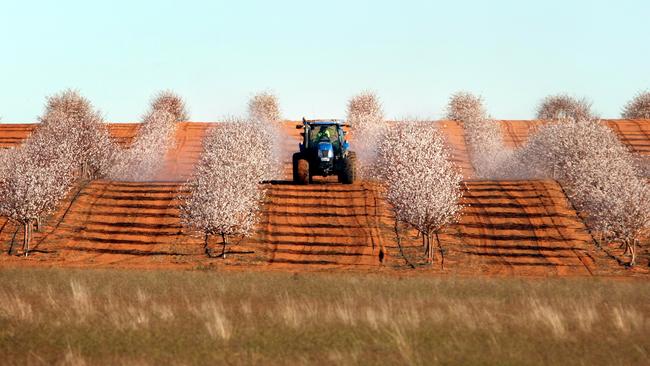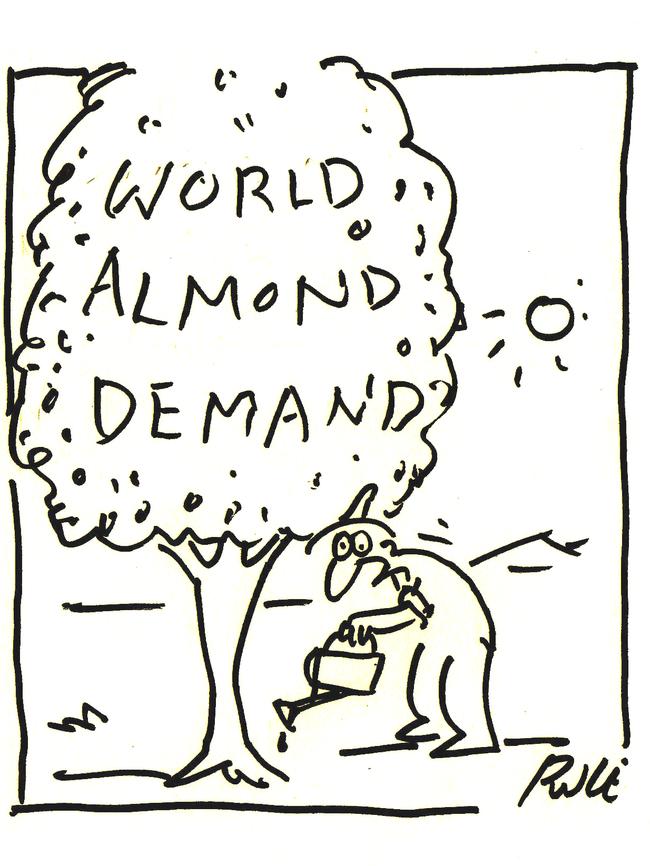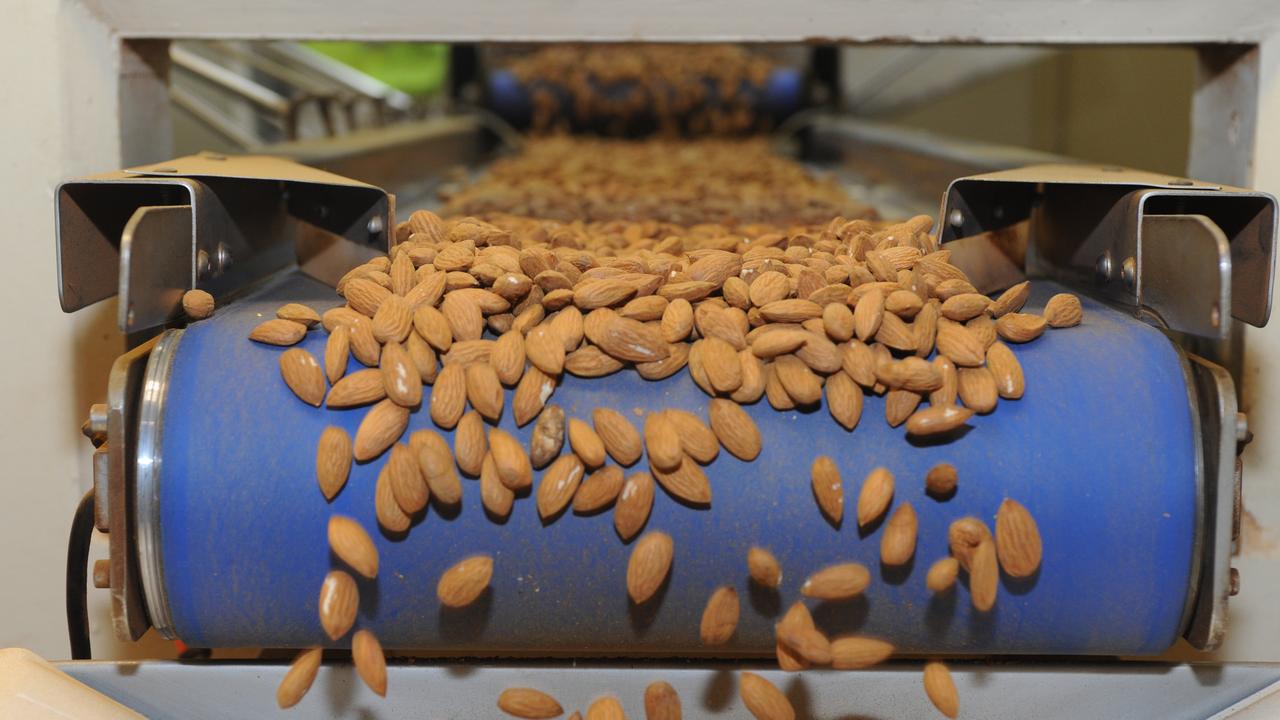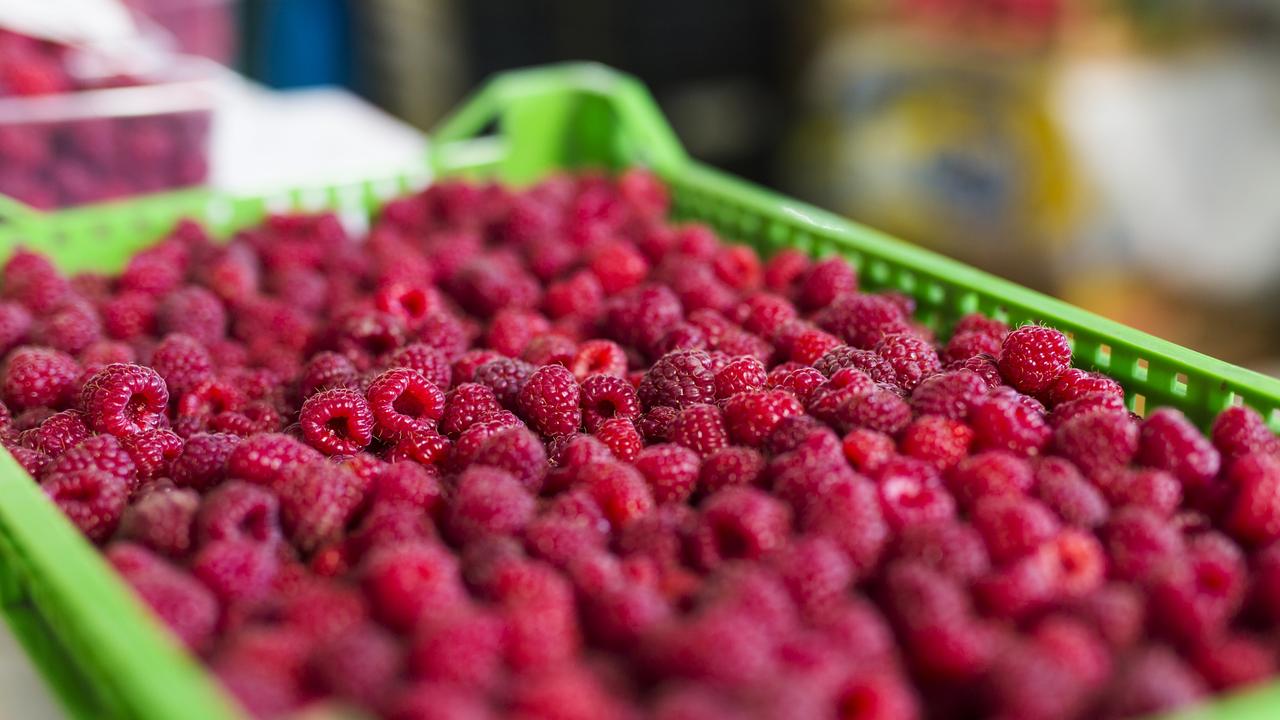Planting go-slow predicted for Australian almonds
Water is hurting the growth of Australia’s booming almond industry, with plantings predicted to plateau until water issues are resolved.

AUSTRALIA’S almond industry has predicted a slowdown in tree plantings despite soaring global demand until governments resolve water security for irrigators, or the drought breaks.
Almond Board of Australia chief executive Ross Skinner said the ongoing drought and its impact on growers of all crops had heightened concern about the development of almonds and table grapes in the southern Murray Darling Basin.
He said he expected a plateau in the planted area of almonds “for a period until water deliverability and water market issues are addressed”.

“It may seem at odds that the almond industry globally is so strong and needing to expand production yet the Australian almond industry was the first to call for a moratorium on approval of new water licences earlier this year. That … was done in recognition of the need to retain a diverse agricultural base and security of water for existing irrigators,” Mr Skinner said.
While new plantings would be curtailed, crops would continue to increase for the “foreseeable future” as trees matured, he said. Almond trees take up to 10 years to bear a commercial crop.
Almond Board of Australia chairman Neale Bennett said water issues such as the flow of water through the Barmah Choke to supply irrigators downstream needed to be resolved before the industry could resume expansion plans.
“And of course we need rain,” he said.
It follows a period of rapid expansion for the industry.
Almonds made up 50 per cent of all new plantings in the Victorian Murray Valley region in the past year, the latest Mallee Horticulture Crop report revealed.
Between mid-2018 and mid-2019, irrigation land in the Mallee increased by 2470ha, or 3 per cent. Half of all plantings were almond, followed by table grapes. This rate of expansion hasn’t been seen since 2009, a trend Victorian Water Minister Lisa Neville described as a “vote of confidence” in the Mallee.
“But we know there are still ongoing concerns about increasing water needs, which is why we’ve taken steps to limit new water extraction below the Choke,” Ms Neville said.



